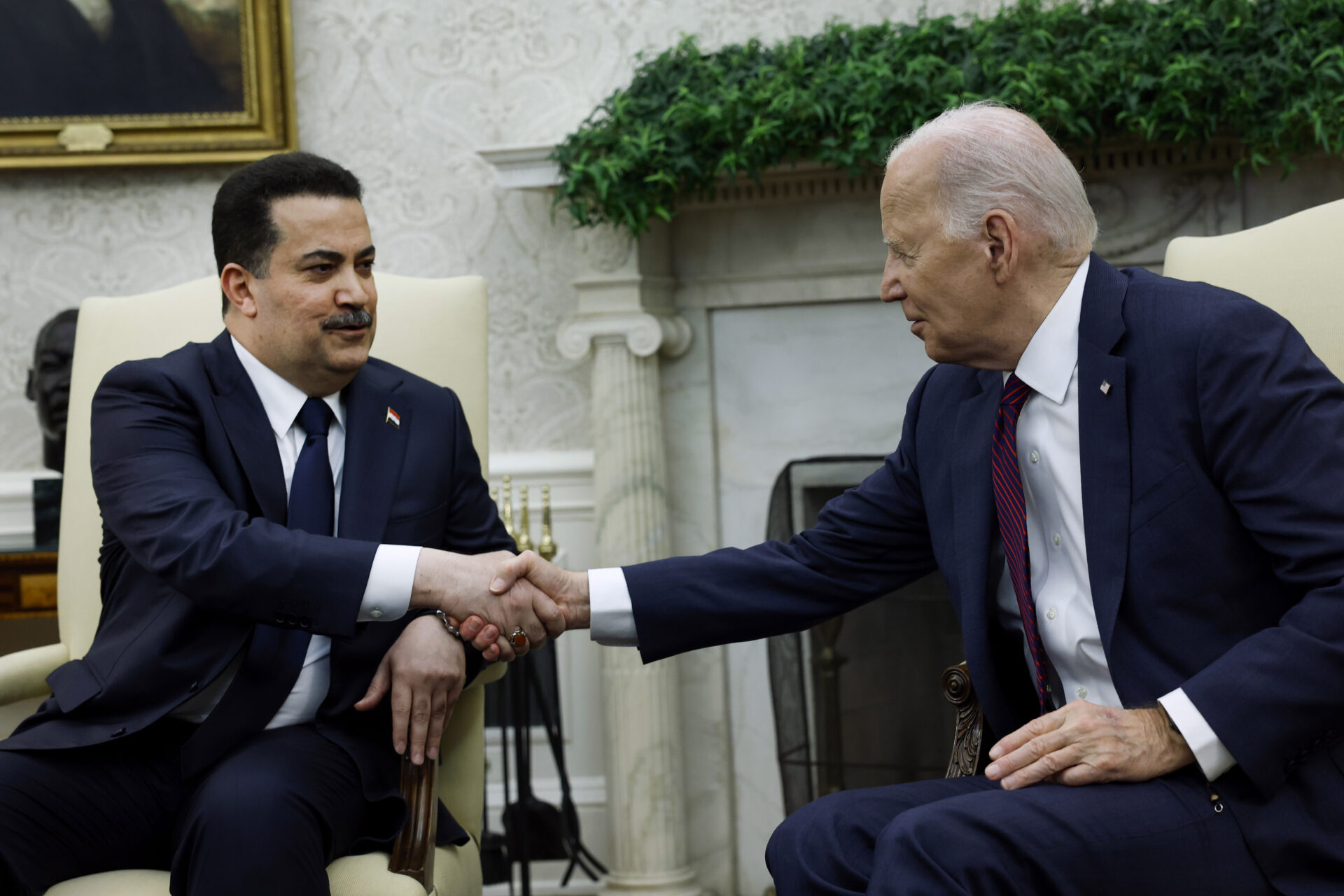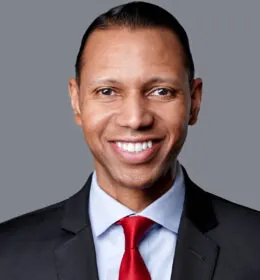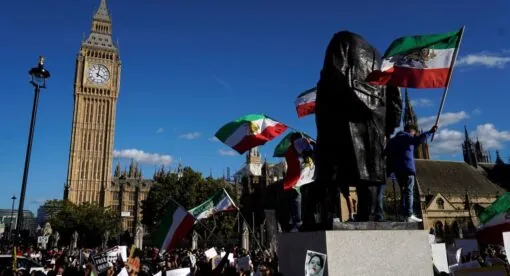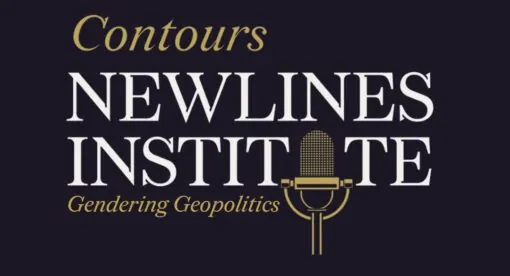Iraqi Prime Minister Mohammed Shia al-Sudani’s April 15 meeting with U.S. President Joe Biden at the White House, came at an uncertain time amid the war in Gaza and in the aftermath of a series of over 180 strikes by Iran-aligned militias on U.S. military personnel in Iraq and Syria. The meeting provided an opportunity for the leaders to reframe U.S.-Iraq relations, especially as the U.S.-led Combined Joint Task Force-Operation Inherent Resolve (CJTF-OIR) evolves in Iraq.
The U.S.-Iraq Higher Military Commission has convened multiple times since January to discuss how to shift CJTF-OIR from its original, international anti-ISIS (Islamic State of Iraq and Syria) mission to a bilateral security partnership. As the Middle East faces regional ramifications from Hamas’ Oct. 7 attack on Israel and Israel’s bombardment of Gaza, and as some in the Biden administration reportedly are considering a U.S. withdrawal from Syria, the Iraqi-U.S. relationship is entering a new era.
While the uncertainty of U.S.-Iraq security relations was a key agenda item for Biden and Sudani, security matters were not the only aspect Iraqi-U.S. relations discussed. Other issues, specifically Iraq’s dependence on Iranian energy and relations between Baghdad and the Kurdistan Regional Government (KRG), also connect to larger U.S. geostrategic goals in Iraq. These issues will likely have increased importance as Iraq and the U.S. evolve their relationship beyond military affairs and security assistance into a more sustainable, multidimensional partnership—what the Biden administration has dubbed a “360° relationship.”
Iraqi Energy Independence
One key topic on the agenda for Sudani and Biden’s meeting was Iraq’s dependence on Iranian energy. Iraq’s oil and gas sector equates to around 90% of the Iraqi government’s revenue. Iraq exports about 3.3 million barrels of crude oil per day globally, with the U.S. importing about 6.7 million barrels of Iraqi oil in January 2024. Despite its production of crude oil, Iraq remains dependent on Iranian natural gas, refined products, and electricity to meet nearly half of Iraq’s demand.
The U.S. State department claims Iraq is making “real progress towards energy sufficiency,” but the U.S. continues to give Baghdad latitude to engage with Tehran on energy issues. Despite outcry from Republicans in Congress, the Trump and Biden administrations both have provided the Iraqi government sanctions waivers since 2018 to import energy from Iran, with the warning that Tehran is only to use the revenue for humanitarian purposes. The U.S. government has placed conditions on these waivers, with the Biden administration wanting Baghdad to focus more on reducing its gas flares (the release of natural gas while extracting oil) and the Trump administration pressuring Baghdad to take long-term steps toward less interdependence with Iran. While the waivers appear to contradict the U.S. goal of lessening Iran’s geopolitical influence in Iraq, the ramifications of energy shortages on the Iraqi populace show that the benefits of the waivers currently outweigh the negatives. This will be the case until Iraq makes more headway toward energy independence.
The Iraqi government has taken initial steps down multiple pathways for increased energy independence. It is considering potential energy agreements with neighboring countries such as Jordan, Saudi Arabia, and Turkey to connect to foreign power grids or to import gas. Other measures include infrastructure investments in Iraq’s energy sector to build gas processing capacity. In the April 15 meeting, Biden stressed the continued support of the U.S. for Iraq’s realization of many of these steps toward energy independence.
Energy issues play a role in Iraqi politics. During the summer months, the Iraqi government commonly announces power outages due to excessive demand for electricity. In summer 2023, southern Iraqi provinces including Basra lost power multiple times, sparking large-scale anti-government protests. These provinces, which typically face the most outages, are also historical strongholds for both Iraqi cleric Muqtada al-Sadr’s brand of Iraqi nationalism and Iraq’s pro-Iranian political parties.
Iraqi public opinion on the U.S., indirectly tied to energy, has impacted Iraqi-U.S. relations, exemplified by the Iraqi parliament’s 2020 passage of a non-binding resolution to expel U.S. troops from Iraq, spurred by massive protests in Baghdad after the U.S. strike that killed Iranian Quds Force commander Gen. Qassem Soleimani. Given the high likelihood of power outages if Washington were to decline to provide Baghdad with a waiver to purchase Iranian energy, public opinion of the U.S., already low in the region due to the Israel-Hamas war, would probably decline further. In response to the revocation of waivers and the ensuing low opinion, the Iraqi government would likely find alternate pathways to disregard U.S. sanctions and import from Iran. Even with the will to avoid U.S. sanctions, all the aforementioned steps the government has been taking toward energy independence are not mature enough to support Iraqi demand. Thus, the energy waivers can be viewed as a short-term policy option to save the Iraqi government from U.S. sanctions and the need to further depend on Tehran for energy (which could translate into more dependence in other areas as well).
In pre-summit statements, Biden mentioned Iraq’s journey of energy independence as an agenda item for the meeting with Sudani, though it received less attention than the ongoing discussions about the U.S. military presence in Iraq. The White House hailed Sudani’s leadership in “moving Iraq’s policy towards strengthening its own energy security.” During the meeting, Biden and Sudani discussed how Sudani is striving for Iraq to become self-sufficient by 2030. Energy independence will be critical in the U.S.-Iraqi relationship and also for Iran’s interwovenness into Iraq through energy at a time when U.S. force posture in Iraq is being critically examined.
Erbil-Baghdad Relations
Biden and Sudani will also likely discuss the ongoing dispute between the KRG and the Iraqi government. This dispute over oil production and exports continues to sour relations between Erbil and Baghdad; Washington – with its unique relationship with both governments – has placed itself at the center of the oil dispute, understanding the importance of political stability and economic strength as critical for Iraq’s overall stability.
Since 2022, Baghdad has attempted through federal court decisions to gain more control over oil located in KRG-controlled areas. The latest Federal Supreme Court of Iraq decision in February ordered the KRG to give all oil and non-oil revenue to Baghdad, representing an escalation from previous developments. In 2022, the Federal Supreme Court ruled that Erbil had to give all its oil to the federal government and that the KRG’s 2007 law that provided legality for the KRG’s independent selling of oil to Turkey was unconstitutional. In March 2023, exports of oil produced by the KRG through the Iraq-Turkey pipeline (ITP) were halted after an International Chamber of Commerce ruling that Turkey had to pay the Iraqi federal government monetary damages for oil pumped from the KRG between 2014 and 2018. The oil dispute is currently at an impasse where the KRG and international oil companies operating in Iraqi Kurdistan are unable to export oil until new agreements are made with the Iraqi government. As of April, approximately $14 billion in gross export revenues have been lost to Iraq and its foreign investment partners due to the halt of exports through the ITP.
Washington has placed diplomatic pressure on Erbil and Baghdad to come to an agreement that will restart oil flowing through the ITP, not only because the ITP once managed 0.5% of global oil supply but also because the ongoing impasse, compounded by budget disputes, hinders Erbil-Baghdad relations and is economically depressing the KRG. When Iraqi Foreign Minister Fuad Hussein visited Washington in March to meet with Secretary of State Antony Blinken, the State Department emphasized the need to restart the KRG’s oil exports. During their Oval Office meeting, both Sudani and Biden agreed over the importance of reopening the ITP.
It is vital for U.S. policymakers to further recognize how the oil dispute between Erbil and Baghdad plays into U.S. security posture in Iraq. The historically strong U.S. relationship with Erbil will likely be a central component of U.S. security policy in Iraq. Furthermore, tension between the KRG and the Iraqi government, exacerbated by the oil dispute, poses a real problem to U.S. security goals in Iraq. Islamic State cells continue to operate along the Kurdistan Coordination Line due to mutual distrust and a lack of collaboration between the peshmerga and Iraqi Security Forces. U.S. policymakers must reinvigorate interest and policy regarding Erbil-Baghdad relations, including with the oil dispute.
Policy Outlook
Sudani’s visit to Washington was an opportunity for Baghdad and Washington to align policy goals. Sudani has faced pressure from elements of his government’s ruling Iranian-aligned coalition to make sizable progress in removing U.S. forces from Iraq. He entered this meeting attempting to achieve actionable results with this goal. Both leaders want to deter Iran and gain support from domestic audiences by announcing a reduction of U.S. troops in Iraq.
For Biden, this meeting occurred in a lull of Iranian-aligned militia attacks that occurred on U.S. troops in Iraq and Syria from Iraqi soil in response to the Oct. 7 attack. The meeting also came after Iran’s April 13 attack on Israel that occurred in response to Israel’s killing of a senior Quds Force commander in Damascus earlier in the month. These events have further raised security concerns about the Israel-Gaza war spilling over into the wider region.
What was undoubtably a security-centric discussion also featured a conversation about Iraqi energy independence and Erbil-Baghdad relations. Iraq’s reliance on Iranian energy continues to be a wedge between Baghdad and Washington, allowing Iran to gain cash flow despite U.S. sanctions. U.S. policy that encourages Iraq to push for independence, whether through domestic efforts or international partnerships, will improve U.S.-Iraqi ties, stop the need for the waiver, and loosen Iran’s grip on Iraq’s energy markets. For Erbil-Baghdad relations, U.S. policymakers need to situate the oil dispute as an ongoing tension that affects regional stability and security. In the event of a U.S. troop drawdown, a healthy Erbil-Baghdad relationship will become even more vital. U.S. policymakers should utilize the attention on Sudani’s visit to reprioritize Iraq and realize how interconnected both Erbil-Baghdad relations and Iraqi energy independence are with U.S. strategic goals in the Middle East.
Myles B. Caggins III, a Non-Resident Senior Fellow at New Lines Institute, is a colonel in the U.S. Army. He provides expertise on public information warfare, ISIS, Kurdish affairs, veterans issues, national security, and military culture. He is founder and CEO of Words Warriors LLC, a translation, public relations, and business advising company. From military posts, combat zones, inside the Pentagon, and the White House (National Security Council), he has led communication strategy for some of the most challenging issues of the past decade. Most recently, he served as the U.S. Army’s Visiting Fellow at the Council on Foreign Relations. He served three year-long combat tours in Iraq. Caggins earned a bachelor’s degree in history from Hampton University and a master’s in public relations from Georgetown University. He tweets at: @mylescaggins.
Carolyn Moorman is an Analyst for the Post-Withdrawal Security Landscapes Initiative at the New Lines Institute. Her research focuses on non-state actors in the Middle East and Central/West Africa. She also hosts the institute’s Contours podcast. Previously, Carolyn conducted research at the American Enterprise Institute’s Critical Threats Project and the Institute for the Study of War. She previously assisted Dr. Nathan French of Miami University’s Department of Comparative Religion with his research on Salafi-Jihadism and interned at the Heritage Foundation and the U.S. Embassy of Luxembourg. Carolyn holds Bachelor of Arts degrees in Political Science and International Studies from Miami University of Ohio and is currently a master’s student at the Bush School at Texas A&M. She tweets at @Carolyn_Moorman.
The views expressed in this article are those of the author and not an official policy or position of the New Lines Institute.







